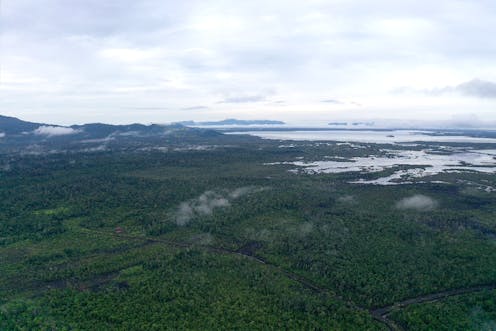Germany Takes Top Spot in Plastics Management Index, Followed by Japan, France, UK, US
- Written by Economist Impact
- Europe leads in global plastics management efforts, while Asia lags—despite producing half the world's plastics
- The top performers in each region are: Middle East and Africa: Ghana (15th); South America: Chile (9th); Europe: Germany (1st); and Asia-Pacific: Japan (2nd)
- The US generates more plastic waste than any other country globally, followed by the EU, India and China
- Most lower-middle income countries struggle across the board—although Vietnam (11th) and Ghana (15th) outperformed
- China (10th), the world's largest plastics producer, is developing the capacity to manage plastics but lags on stakeholder engagement
- Latin American nations rank in the middle to lower end of the index and are weakest in the stakeholder engagement category
TOKYO, JAPAN - Media OutReach[1] - 5 October 2021 -Back to Blue[2], an ocean health initiative of Economist Impact and The Nippon Foundation, today releases the first edition of its Plastics Management Index (PMI)[3]. The index ranks 25 countries worldwide across five continents, assessing the capacity of a country to minimise plastics mismanagement while promoting the optimal production and use of plastic as a resource. The index comprises three pillars - governance, existing systemic capacity, and stakeholder engagement —measured across 12 indicators and 44 individual sub-indicators.
The world produces and uses more plastic each year, with 367 million metric tonnes manufactured in 2020. With production forecast expected to double by 2040, plastic is not the world's only pollution challenge, but it is arguably the most prominent. The scale of the challenge demands a new framework that covers the entire lifecycle of plastic products—from design to production to consumption to disposal and beyond. The PMI is designed to bring attention to growing global concerns around the use of plastic, highlighting how its management can be made sustainable.
The report reveals that Germany is the top performer overall in plastics management, scoring 87 points out of 100. Ranking first for governance and stakeholder engagement and third for systemic capacity, this is largely due to the country's recycling scheme by the government and industries that have resulted in a circular economy for plastics.
Despite producing half the world's plastics, Asia lags in global plastics management efforts as compared to Europe. Europe leads the overall ranking largely thanks to the proactivity of the European Union and the region's ability to fund innovation and research. Asia-Pacific countries largely comprise the middle of the table, followed by Latin American nations and those in Africa.
Naka Kondo, editor of the PMI report, Policy and Insights at Economist Impact, says:
"We have created the Plastics Management Index as a new benchmark for measuring how countries are coping with plastics from cradle to grave--just as the need, and interest, globally builds for managing plastics across their entire lifecycle, rather than with piecemeal approaches such as plastic bag bans. Quite a few countries continue to struggle, though the index identifies real currents of hope. But equally, just because countries appear to be performing well does not mean they are doing enough to address the issues."
Yohei Sasakawa, chairman of The Nippon Foundation states:
"The path the world is on with plastics is plainly unsustainable. Already plastics leakage is doing untold damage to our ocean. The scale of the challenge is startling, and in urgent need of cohesive and effective solutions that can address every element of the complex lifecycle of plastics. The Plastics Management Index, I hope, will shed light on where we are globally, and where we need to be headed to manage plastics more effectively and responsibly."
Overall ranking

The top performers in each pillar are as follows:
Governance: Germany (1), Japan (2), France (3), US (4), Sweden (5)
Systemic capacity: UK (1), Japan (2), Germany (3), US (4), France (5)
Stakeholder engagement: Germany (1), Malaysia (2), Japan (3), Australia (4), Chile (5)
Visit backtoblueinitiative.com for the full report, data workbook and interactive tool[4]
References
- ^ Media OutReach (www.media-outreach.com)
- ^ Back to Blue (backtoblueinitiative.com)
- ^ Plastics Management Index (PMI) (backtoblueinitiative.com)
- ^ Visit backtoblueinitiative.com for the full report, data workbook and interactive tool (backtoblueinitiative.com)
Authors: Economist Impact



